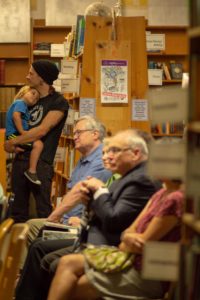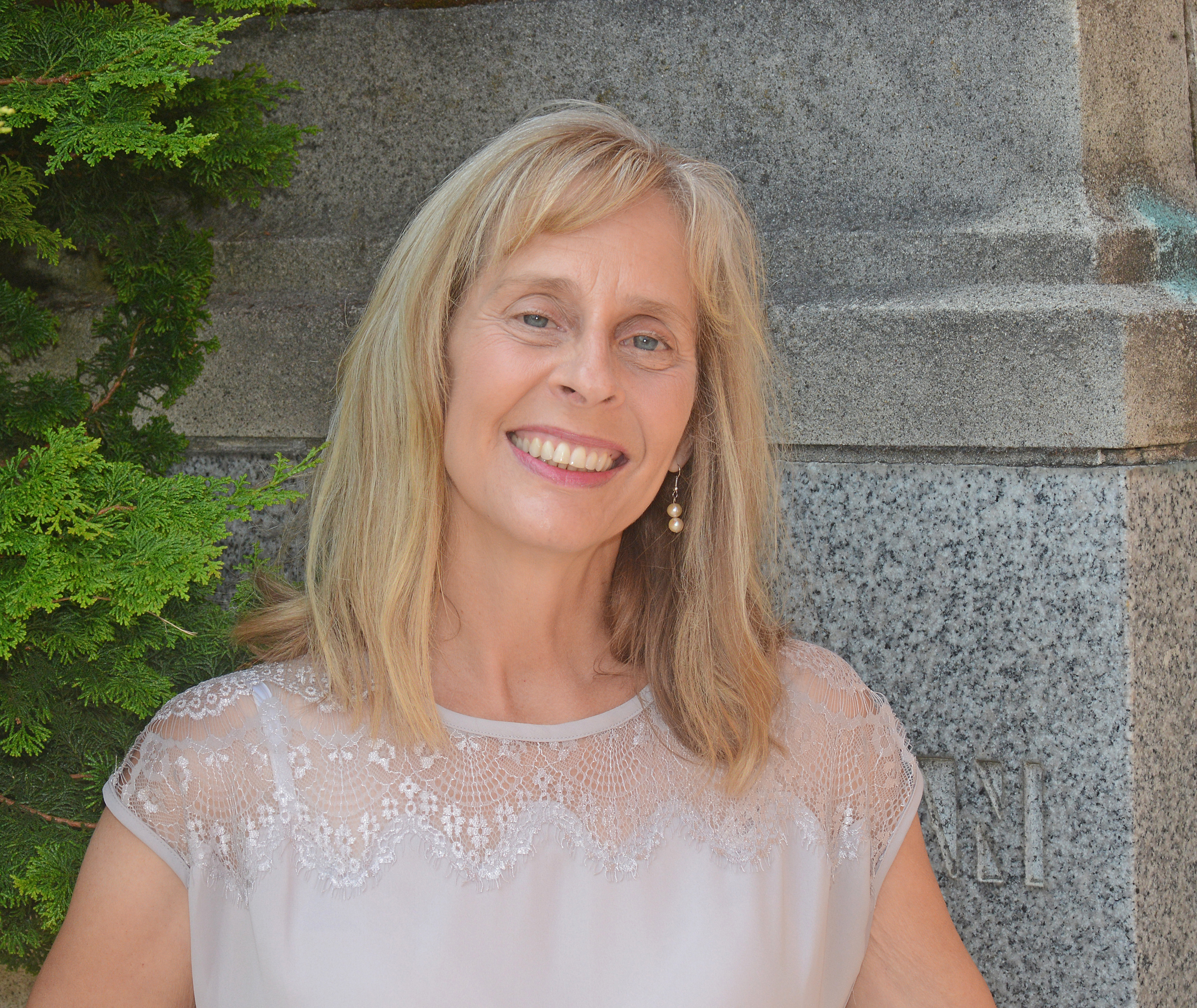 My novel The Songs We Hide came out May 1, and since then I’ve done eleven book events. I’m using the term “events” loosely, because these gatherings have come in different sizes and taken different forms. I’ve presented at bookstores, with one gathering consisting of over 70 people and another consisting of four. I’ve spoken to a small writing group, a church women’s book club, and a whoever-wants-to-come group in a retirement facility. I’ve spoken in homes and in a business conference room. My largest number of sales was 44; my smallest, I think, was three.
My novel The Songs We Hide came out May 1, and since then I’ve done eleven book events. I’m using the term “events” loosely, because these gatherings have come in different sizes and taken different forms. I’ve presented at bookstores, with one gathering consisting of over 70 people and another consisting of four. I’ve spoken to a small writing group, a church women’s book club, and a whoever-wants-to-come group in a retirement facility. I’ve spoken in homes and in a business conference room. My largest number of sales was 44; my smallest, I think, was three.
Claire Gebben, a writer friend who’s been doing this longer than I have, wisely told me that book events usually aren’t money-makers, but they’re good opportunities to  connect with people. That’s what I’m finding out. After these events, what I tend to remember is the dialog, the stories people tell me afterward, the questions they ask. I’ve talked with aspiring writers who feel confused and overwhelmed, and I’ve talked with Hungarians who still carry painful memories 60 years after leaving their homeland.
connect with people. That’s what I’m finding out. After these events, what I tend to remember is the dialog, the stories people tell me afterward, the questions they ask. I’ve talked with aspiring writers who feel confused and overwhelmed, and I’ve talked with Hungarians who still carry painful memories 60 years after leaving their homeland.
At times the conversation is more rushed and interrupted than I’d like: a few nights ago a man was trying to tell me about his Hungarian grandparents while someone else wanted me to sign the book she’d just bought. But I try to listen whenever I can. People need to know that their concerns matter to someone, and in situations like this, I am that someone.
Another thing Claire and other writers told me is, “People don’t just want to hear you read from your book. They want to hear your own story.” At first I didn’t know what to do with this. My story? What’s interesting about that? But I’m finding that the advice is true. People want to know what this process has been like. They want to know what has motivated and frustrated me. Recently one perceptive audience member asked how the writing process has changed me. What a question.
So I talked about learning to deal with criticism of my work. I spoke of putting myself into the mind and heart of my protagonists, which meant thinking like someone else, not just now and then but almost daily for a number of years. This has been a long season of setting myself aside–telling my ego to leave me alone so I can work, quieting my own self-talk so the voices of my characters could emerge.
This self-emptying was hard to put into words at the book event. But afterward a writer and an artist in the audience came up to me and told me they felt inspired. They wanted to go home and write or paint. My friend Claire was right: my inner story matters more than I know, not just to me, but to others as well.


Thank you for your insights, your encouragement, and your wisdom. In the end it is our stories that connect us, isn’t it?
Thank you, Michele. You’re right: it’s our stories that connect us.
Thanks for sharing these experiences. I can identify with what you say about setting yourself aside and living through someone else’s eyes. It is unique to writers and actors, I suppose, and a challenge at many levels. It’s been a privilege watching you go through this!
Ruth, that’s an interesting point about this (taking on the point of view of a character) being unique to writers and actors. You’re right — I can’t think of any other profession that does this. In “real life” we try to understand others, but in writing or acting we have to BECOME others. Yeah, it’s hard. But it’s interesting, isn’t it? I’m a Hungarian farmer, you’re a Norwegian hunter . . .
love your insights. I’ve found there’s nothing like POV to help enlarge how I see others and my world!
I agree, Cynthia: Looking at life through the eyes and understanding of someone else–even a fictional someone else–changes our perspective. Thanks for your comment.